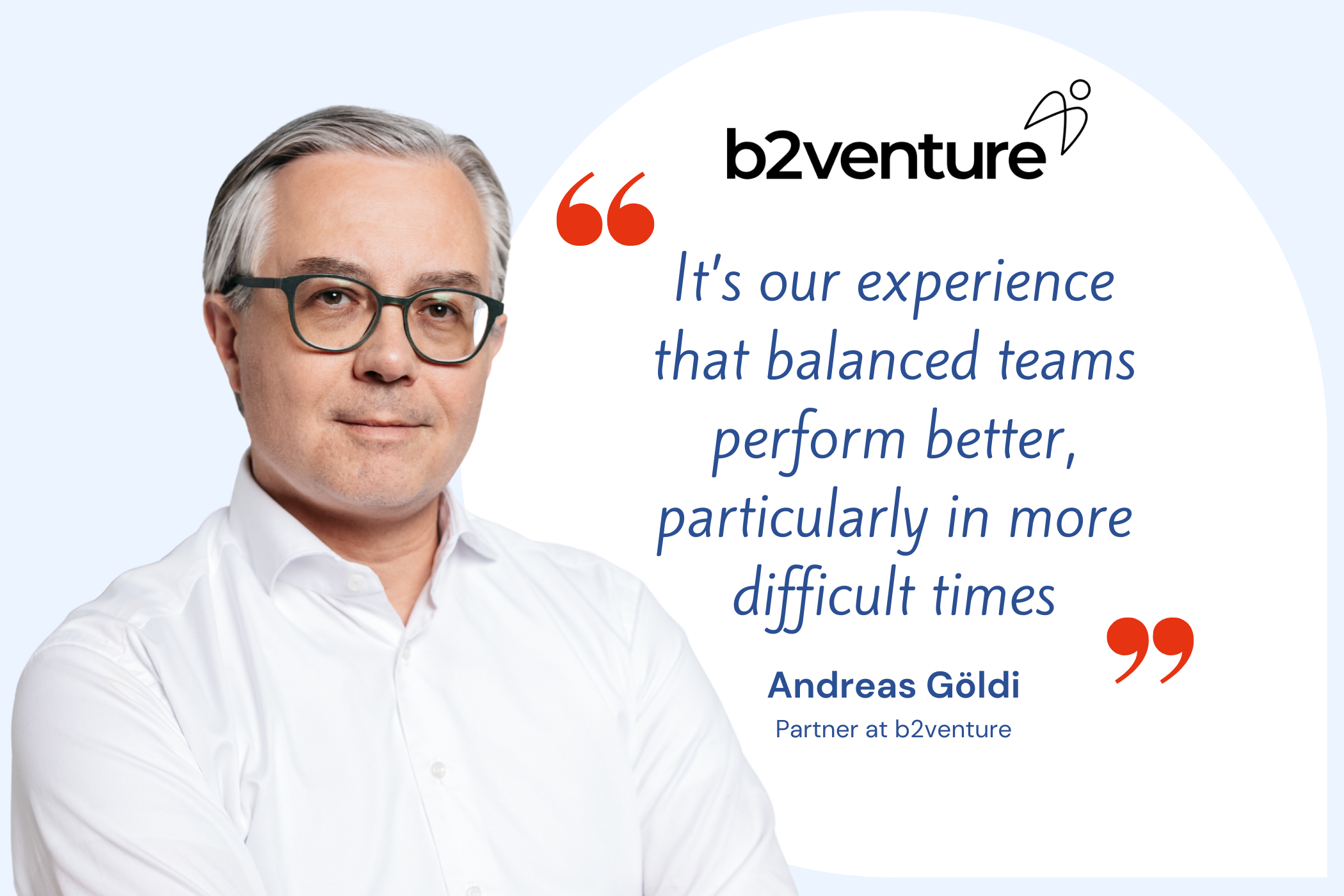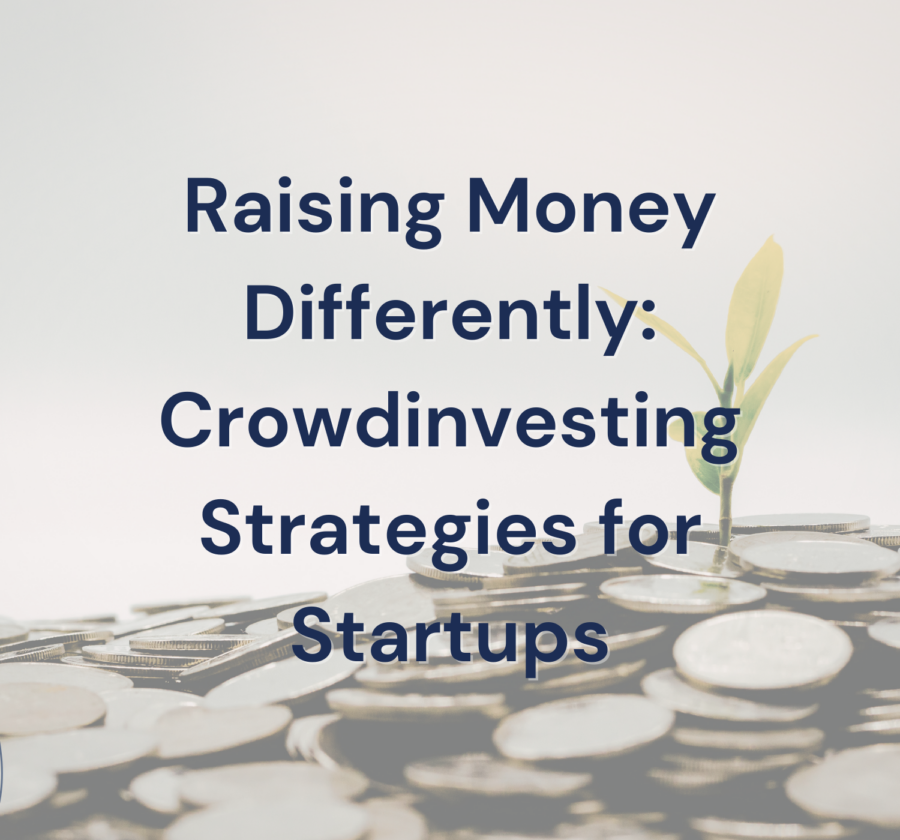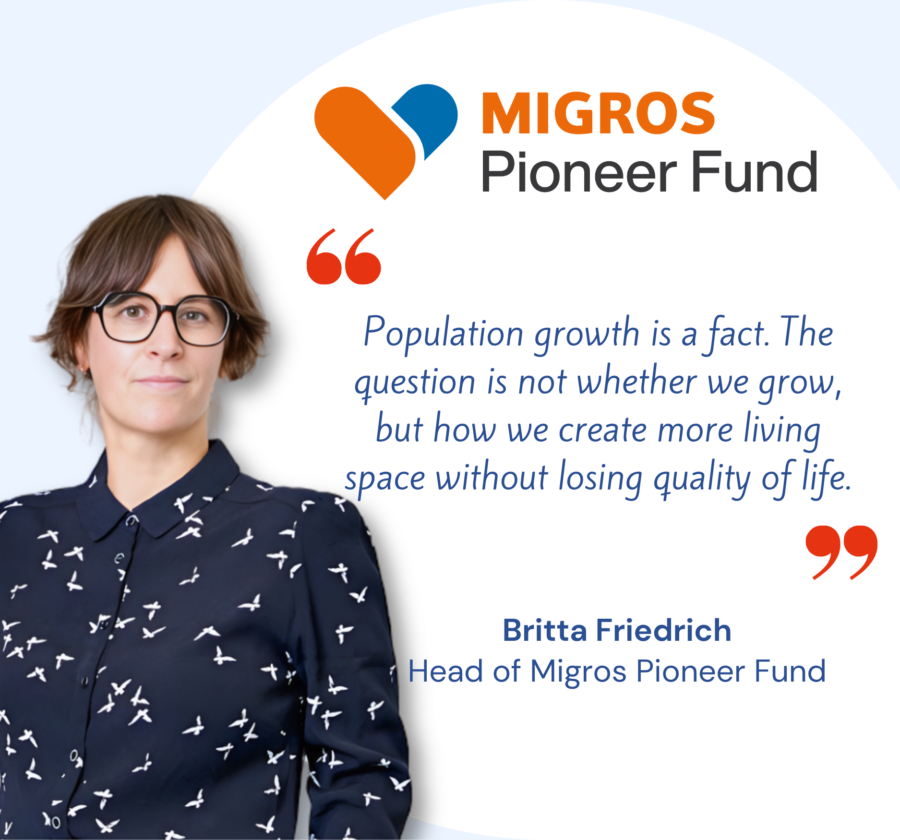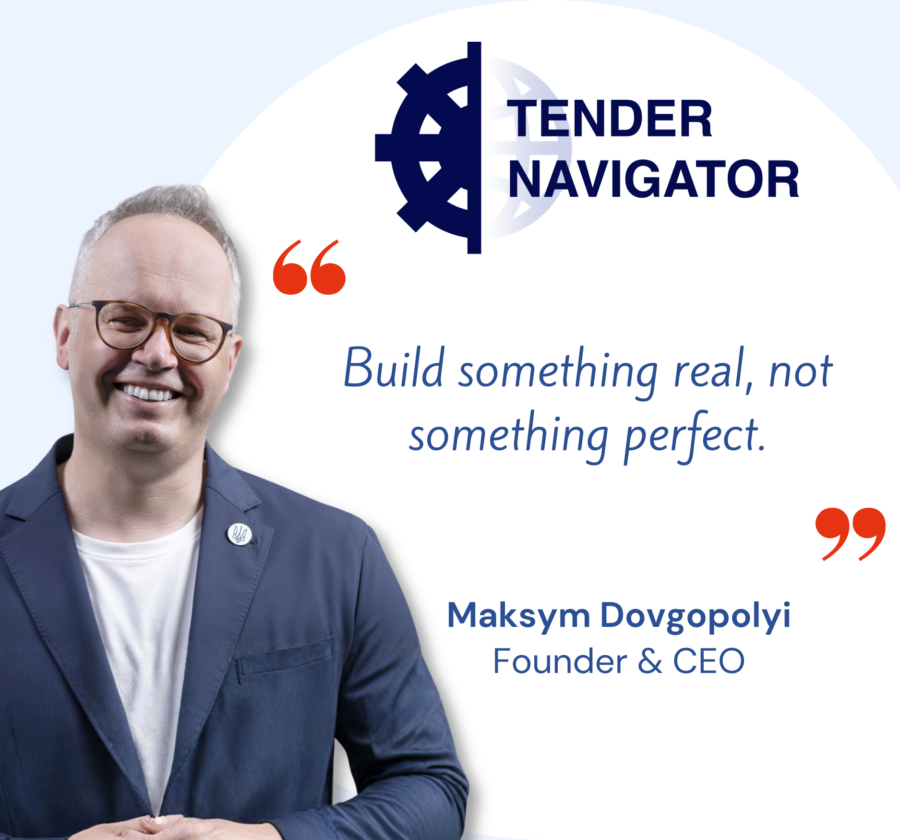
Meet our Investor Member Andreas Göldi Partner at b2venture
Where does your passion for entrepreneurship stem from?
My father was the head of the economic development agency in the canton of St. Gallen. When I was a child, he often took me on company visits to the best companies in the region. That’s where I met entrepreneurs, and I was deeply impressed by what they were doing. Later when I was at university, I didn’t even consider joining a bigger company. It was just clear to me that I wanted to be an entrepreneur.
Please tell us about your journey from being a founder yourself, to now being active on the VC and investor side of things. Does your experience as a founder help in your investment decisions, if yes, then how?
I helped build four startups in my career (including a corporate spin-off) and also played a role in the founding of a few others over the years as an angel investor and early board member. When I came back to Europe after 12 years in the United States, it was clear to me that I didn’t want to do another startup. I got an offer from b2venture – a VC firm I’ve known since its earliest beginnings – and decided to join as a partner. I always liked investing and board work in my activities as an angel investor, so this was a fairly logical transition for me.
My experience as a founder is certainly very useful in supporting the founder teams in our portfolio. You often have a different perspective on the challenges every startup will go through if you have done this kind of work yourself. However, as a former operator, you consciously have to avoid getting involved in too many details at portfolio companies. It’s the founders’ company, and I’m just an advisor. I’m not running it.
In terms of investment decisions, it’s probably a mixed bag. I think as a former operator you have some deeper insights into certain market dynamics and founder constellations, but there is also a danger of getting too excited about some topics because you have an affinity for them from your own background. Investors need to keep a certain distance to their decisions, and that’s not always easy for former founders.
You are a member of several boards. What are the most common mistakes that startups make with the composition of their boards?
There are some time-tested best practices for board composition at any stage. We have actually documented them on our Startup Resources website (https://resources.b2venture.vc/). For example, a Series A company should have five board members – 2 founders, 2 VCs and one independent – plus maybe one additional observer. You sometimes see boards with 7-9 members and half a dozen observers at that stage, and that’s completely dysfunctional. Boards should be compact and deeply engaged. Many companies also get independent board members way too late. These can often be the most effective board members if they have relevant industry experience. They also have different incentives than investors and therefore are often a crucial neutral voice in the boardroom.
You often attend pitch sessions and have seen thousands of pitch decks during your career. If you could give founders bits of advice on how to attract an investor’s interest, what would you say? And which questions do you often ask, that take founders by surprise?
Founders have to understand what audience they are pitching to. Many founders get trained by incubator programs to look good at public pitching events, so they for instance spend a lot of time on emotional stories at the beginning of the pitch that explain the problem. This might work for angel investors and pitching competition juries, but professional investors don’t really care about that. They want tangible information about the market and customer needs. Another weak point in many presentations is competitive differentiation. You have to be able to explain very clearly why your future customers will pick your product and not your competitors.
Before we talk to startups, we typically do our own market research, and when we ask specific questions about competition, founders are often surprised. Since I have a technical background, I also like to ask detailed questions about the product and technology. That’s often another surprise, because many pitch trainings tell founders to stay at the surface and not go into detail. Again, it really depends on what kind of investor you’re talking to, and you have to be able to adapt your pitch accordingly.
b2venture is a VC firm, that works closely with a community of angel investors, how does this collaboration work and what benefits does it bring for the startups you invest in?
Our angel network plays three crucial roles in our process: First, it’s often a source of the very best deal flow. Our angels bring companies to us that they might have known for a long time and already invested in personally. That’s a huge quality indicator. Most of our biggest success stories came from this source.
Secondly, we often rely on experts in our network to help with investment decisions and due diligence.
Finally, our angels often co-invest with our fund, which brings several engaged people to the table. Many of our angels have very deep knowledge and networks in certain markets, and this kind of support can be a huge plus for a startup.
With b2venture focus often being pre-seed or seed, how do you view the evolution of early stage investments during the coming years? And how is b2venture involved in that development?
We are currently experiencing a shift in the overall VC industry towards more deep tech, driven by technologies such as AI, new materials, new energy sources and advances in biotech. That means that early investment round decisions will not be driven by very tangible traction, as was the case in e-commerce or SaaS companies over the past 1.5 decades. It’s going to be much more of a bet on technology and emerging market sectors, and that requires a different skill set and mentality from investors.
It also means that founders will be more technical on average, and they will need to learn the skills of how to build a business quickly. We at b2venture are therefore involved deeply in the overall ecosystem, for example with START Global and several of the top universities. We also recently co-authored the book “Scale-up Navigator” together with the chair for entrepreneurship at the University of St.Gallen in order to make decades of company-building knowledge available to a broader audience. We think that investors should play a role in fostering the ecosystem and supporting founder teams in a broad sense.
What is the typical investment size b2venture considers for startups? What sector do you invest in, and how many investments do you make per year?
Our smallest tickets in initial rounds will start around 500k CHF and can go up to 2 or 3 million. Our early-stage fund focuses on AI, sustainability tech, digital health and logistics, next to more traditional topics such as fintech.
We are a bit unusual as a firm because our angel network can also invest independently in a broader range of topics, such as food tech or space tech. Across all our vehicles, we deploy about 70-100 million Euros per year. Typically there are going to be about 10-15 initial new investments per year.
Can you describe the due diligence process? What factors do you consider before investing?
We believe in a holistic understanding of any company we invest in. That means that we will do due diligence about the technology, the market, initial customers, and the founding team, as well as the usual items such as finances and legal contracts. There are no simple rules that go into an investment decision. It’s completely normal that any company has strengths and weaknesses, but we want to understand in detail what they are before investing.
How long does the investment decision-making process usually take?
It depends on the stage. For early pre-seed rounds, it can be as fast as two weeks, in later stage cases it can take a bit longer, maybe up to a month or two. But we always try to be as efficient as possible, because we have deep respect for founders’ time.
What qualities or attributes do you look for in founding teams when considering investment opportunities? Could the composition of a founding team make or break an investment decision?
We are looking for balanced teams that provide a variety of skills and different backgrounds. Teams that for instance consist of only technical or only business founders, as well as those with very similar age ranges and gender distributions will have a disadvantage compared to more diverse teams. It’s just our experience that balanced teams perform better, particularly in more difficult times. It’s not a clear cut make or break situation if a company has a lot of other strengths, but on average balanced teams are preferred.
What is the typical timeline for exiting investments? Are you focused on short-term exits or long-term growth opportunities?
We are focusing on companies that can have a very large exit at some point, recognizing that this can take many years. Short-term exits rarely move the needle for a VC fund of a certain size, so we tend to select teams that have the ambition to build something really big.
Are there any investments that you regret not having done, and if yes, why?
Yes, there are always companies that you miss out on because the fit just wasn’t right at the time or you came to the wrong conclusion when making the decision. In Switzerland, I would for instance mention Frontify, Yokoy and Deskbird.
b2venture collaborates with the Swiss Startup Association. What was your motivation for this decision? Why do you think organizations like the SSA are needed?
Associations like the SSA are absolutely crucial to build a strong ecosystem. We have come a long way in Switzerland, but there’s still a lot to do. Startups still don’t get the political attention and support they deserve, for instance. Also, the SSA plays a crucial role in bringing together founders (and ex-founders) across generations, plus essential partners such as law firms. During my time in Boston, I saw how important it is to have an intergenerational and interdisciplinary ecosystem, and we still have to develop more of that in Switzerland.
Connect with Andreas on LinkedIn
________________________________________________________
About the Swiss Startup Association
The Swiss Startup Association (SSA) is the umbrella organisation and the voice of Swiss startups. As a sector-independent non-profit organisation, the SSA gives startups a strong voice vis-à-vis politics, business and the public and works to improve the conditions for startups in Switzerland.
Beyond its political engagement, the SSA fosters a community for startups, recognizing the unique challenges they face. Through networking opportunities, educational sessions, and practical services, the SSA collaborates with industry partners to offer tailored support and valuable resources to guide founders on their entrepreneurial journey.
Join the Swiss Startup Association! Tap into our member benefits, the comprehensive Investor List and get full access to our events. By becoming an SSA Member, you enjoy discounted tickets to our Big Founders Dinners, the SSA Founders Day, and our other events.


